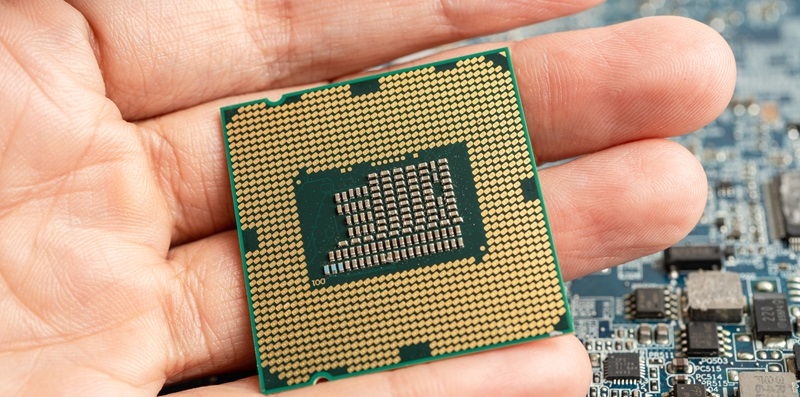The tech sector is buzzing with anticipation as CPU giants AMD and Intel gear up for a major battle in the market. AMD’s announcement of their Zen 5 processors has captured the industry’s attention, sparking widespread speculation about how these new chips will perform. With Intel’s next-generation Arrow Lake processors also on the way, the rivalry is intensifying. AMD isn’t taking any chances and is reportedly pushing its production schedules forward. This could be a strategic move to gain an upper hand over Intel by releasing their cutting-edge CPUs first. The competition between these two titans is not just about bragging rights; it’s about leading the future of processing power. As both companies prepare to unveil their latest innovations, tech enthusiasts and industry professionals eagerly watch. The stakes are high in this clash of the silicon titans, with the potential to shape the CPU market for years to come.
The Rise of AMD’s Zen 5
Zen 5’s Early Debut and Technological Leap
AMD is gearing up to start mass production of their next-generation Zen 5 CPUs in Q3, utilizing an advanced 4nm process technology, stepping down from Zen 4’s 5nm. This upgrade promises substantial gains in performance and efficiency, a boon for tech enthusiasts. Chinese tech source UDN reports that production is moving ahead of schedule, stirring excitement about an early launch. This development has the potential to shake up the market, giving AMD the chance for a significant advantage.
The accelerated timeline marks a bold move by AMD, possibly granting them a lead over competitors while also raising risks associated with fast-tracking new technology. Consumers and industry players are watching closely, as AMD’s strategy appears to be outpacing Intel’s efforts. The aim is clear: AMD wants to dominate the market by offering more refined and powerful processors, striking a balance between pushing the envelope in innovation and maintaining reliability.
Compatibility and Market Adaptation
The anticipated Zen 5 CPUs are set to be compatible with the existing AM5 socket, first seen with the Ryzen 7000 desktop chips. This strategic move by AMD caters to the upgradability of current Ryzen 7000 series users, allowing them to transition to the new processors effortlessly. This not only delights dedicated Ryzen enthusiasts but also eases the upgrade path for general users within the Ryzen fold.
However, for those on older AMD platforms or Intel-based systems, a CPU swap alone won’t suffice. Since the chips are backward-compatible with only their immediate predecessors, this strategy could sideline potential adopters from different camps who would need a more extensive rebuild. As the market processes this development, there will be a division between the simplicity of upgrading for existing Ryzen users and the complexity for new adopters, which will be a defining factor for the Zen 5 CPUs’ market reception and integration into the tech ecosystem.
The Tension Intensifies with Intel’s Counter
Intel’s Arrow Lake and Synchronizing Releases
Intel is preparing its Arrow Lake processors to counter AMD’s forthcoming Zen 5 CPUs, setting the stage for a major showdown in the tech industry. Targeting the same release period, both giants are strategically timing their advances, a vital factor that may well dictate the market leader for the foreseeable future.
The competition extends beyond mere technological prowess; it’s a battle of brand perception and innovation. Intel, a veteran in the field, is banking on its Arrow Lake chips to reassert its dominance. Meanwhile, AMD’s Zen 5 is set to challenge Intel’s position.
The coming months are crucial as both Intel and AMD race to release their latest processors. The industry watches closely, as the success of these products will hinge on performance benchmarks and customer approval. This imminent face-off between Intel’s Arrow Lake and AMD’s Zen 5 is not only a testament to the relentless innovation in the CPU market but also to the strategic planning that could shape the tech landscape for years to come.
A Strategic Race for Market Influence
In the high-stakes contest for CPU market dominance, AMD and Intel are racing to outmaneuver each other. With each snippet of news, the tech community buzzes with predictions on who will emerge as the leader. AMD’s upcoming Zen 5 platform is pivotal; it’s an opportunity for them to solidify their standing and potentially outpace Intel. Success hinges on exceeding performance benchmarks and beating Intel to market.
A swift and successful launch, particularly with desktop CPUs, can tilt the scales in AMD’s favor, attracting PC enthusiasts and gamers alike. As AMD scales up production, they aim to start with desktop versions and subsequently target the laptop market after gaining user insights. The outcome of this duel may very well shape the future hierarchy of the CPU industry. Will AMD land a decisive blow, or will Intel fight back, resulting in a titanic struggle for market control? Only time will tell in this gripping showdown between tech giants.

